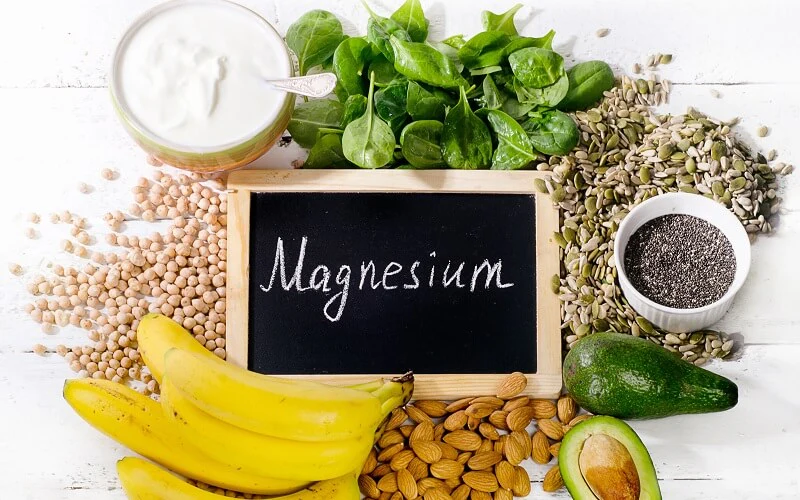14 Ways to Begin Healing…
Blog by Sherry Larson 14 Ways to Begin Healing Your…
Table of Contents
Toggle
Magnesium is often referred to as the master mineral because of its crucial role in over 300 enzymatic processes in the body. Every cell, tissue, and organ requires magnesium to function properly, yet magnesium deficiency is one of the most common nutrient deficiencies worldwide. Many modern diseases, from cardiovascular issues to mental health disorders, have been linked to low magnesium levels.
This article will explore:
By the end, you’ll have a clear understanding of why magnesium is one of the most vital minerals for overall health and how you can ensure you’re getting enough.
Why Magnesium Is Essential for Your Health
Magnesium plays a fundamental role in nearly every biological process. Here are some of the most critical functions it supports:
Signs and Symptoms of Magnesium Deficiency
Magnesium deficiency is widespread, often due to depleted soil, processed foods, and modern lifestyle factors. Some common signs of deficiency include:
If you experience any of these symptoms regularly, you may need to increase your magnesium intake.
The Best Natural Sources of Magnesium
Getting enough magnesium through diet is the best way to maintain optimal health. Here are some of the most magnesium-rich foods:
How to Optimize Magnesium Absorption
Even if you consume magnesium-rich foods, certain factors can hinder absorption, including stress, excess caffeine, alcohol, and processed foods. Here’s how to maximize magnesium absorption:
Magnesium Supplements: Are They Necessary?
For those who struggle to get enough magnesium through food, supplementation may be beneficial. However, not all magnesium supplements are created equal. Here are the most effective forms:
It’s best to consult a health professional before starting any supplement regimen, especially if you have existing health conditions.
Conclusion: Prioritize Magnesium for Lifelong Health
Magnesium is one of the most important minerals for overall well-being, yet many people unknowingly suffer from deficiency. From heart health and brain function to muscle recovery and stress relief, magnesium supports nearly every system in the body.
By prioritizing magnesium-rich foods, optimizing absorption, and considering supplementation when necessary, you can improve energy, sleep, mood, and longevity.
Don’t overlook this essential mineral—your health depends on it.
Blog by Sherry Larson The Hidden Dangers of Diet Cola: What You Need to Know Diet cola has…
Blog by Sherry Larson 14 Ways to Begin Healing Your Gut and Transform Your Health …
Blog by Sherry Larson Prebiotics vs. Probiotics: Understanding the Key to Gut Health Gut health plays a crucial…
Blog by Sherry Larson The Hidden Benefits of Sunlight: More Than Just Vitamin D Sunlight is often associated…
Blog by Sherry Larson The Deceptive Marketing of “Natural” Labels on Processed Foods Consumers are becoming more health-conscious,…
Blog by Sherry Larson The Power of Anti-Inflammatory Juice: Carrot, Ginger, Turmeric, Lemon, and Pineapple Inflammation is the…
Blog by Sherry Larson 12 Things Healthy People Do Differently: A Blueprint for Well-Being Health is not just…
Blog by Sherry Larson Health is Found in the Produce Aisle: The Power of Whole Foods …
Blog by Sherry Larson Food as the Most Abused Anxiety Drug and Exercise as the Most Underutilized Antidepressant …
copyright © 2025 Anti-Inflammatory Approach. All rights reserved. Unauthorized reproduction, distribution, or use of any content, including text, images, recipes, or other materials on this website, is strictly prohibited without prior written permission. This website’s content is provided for informational purposes only and does not constitute medical or professional advice.


This $1 anti-inflammatory cookbook is packed with simple, tasty recipes to reduce inflammation and improve energy. Don’t miss out—get it now on Amazon!